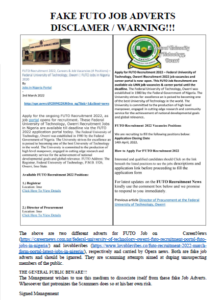Public health is the art and science of preventing disease, prolonging life, and promoting health through the organized efforts of society. Simply, public health promotes and protects the health of people and the communities where they live, learn, work and play. Public health professionals engage in activities which advocate for and promote policies that encourage healthy lifestyles, research in diseases, detection and prevention of injuries, and control of diseases.
Public health practice is concerned with the process of mobilizing local, state, national and international resources to assure the conditions in which all people can be healthy and access healthcare timely when needed. Public health can equally be described as what we as a society do collectively to ensure that the environment in which live, learn, work, and play is the one which can support good health and wellness necessary for the enjoyment of life and useful productive activity.
Public health has to do with timely identification of risk factors to the optimal health status of populations, empowerment of populations and segments thereof at risk of morbidity and premature death to assume responsibility for the promotion and maintenance of optimal health through the purposive provision, efficient management, and effective implementation of technologies and services.
Many of the public health’s duties are the health issues that confront our daily lives like protecting our drinking water, maintaining a clean environment and waste disposal, ensuring car and road safety, providing vaccinations against diseases and epidemics, safer foods etc.
At the Federal University of Technology, Owerri, our public health curriculum is built on the major tenets of Public Health Science and in accordance with the National Universities Commission (NUC) Basic Academic Standards (BMAS). Our curriculum is drawn from a vast spectrum of disciplines and knowledge area including but not limited to epidemiology, biostatistics, social sciences, basic & applied sciences, humanities, physiology and anatomy, community medicine, law and ethics, computer science and application, management, pharmacology etc.
Through a combination of practical experience and academic rigour, our programmes in public health prepare graduates and equip them with the knowledge and skills to:
- Assess the health needs of diverse communities/populations;
- Plan, implement and evaluate collaborative health promotion and disease prevention programs;
- Assess the health needs of diverse communities/populations;
- Plan, implement and evaluate collaborative health promotion and disease prevention programs;
- Recommend and execute health intervention programs to address specific community health needs;
- Facilitate and build local community capacity to solve public health problems through partnership and collaboration with other agencies and so on.


